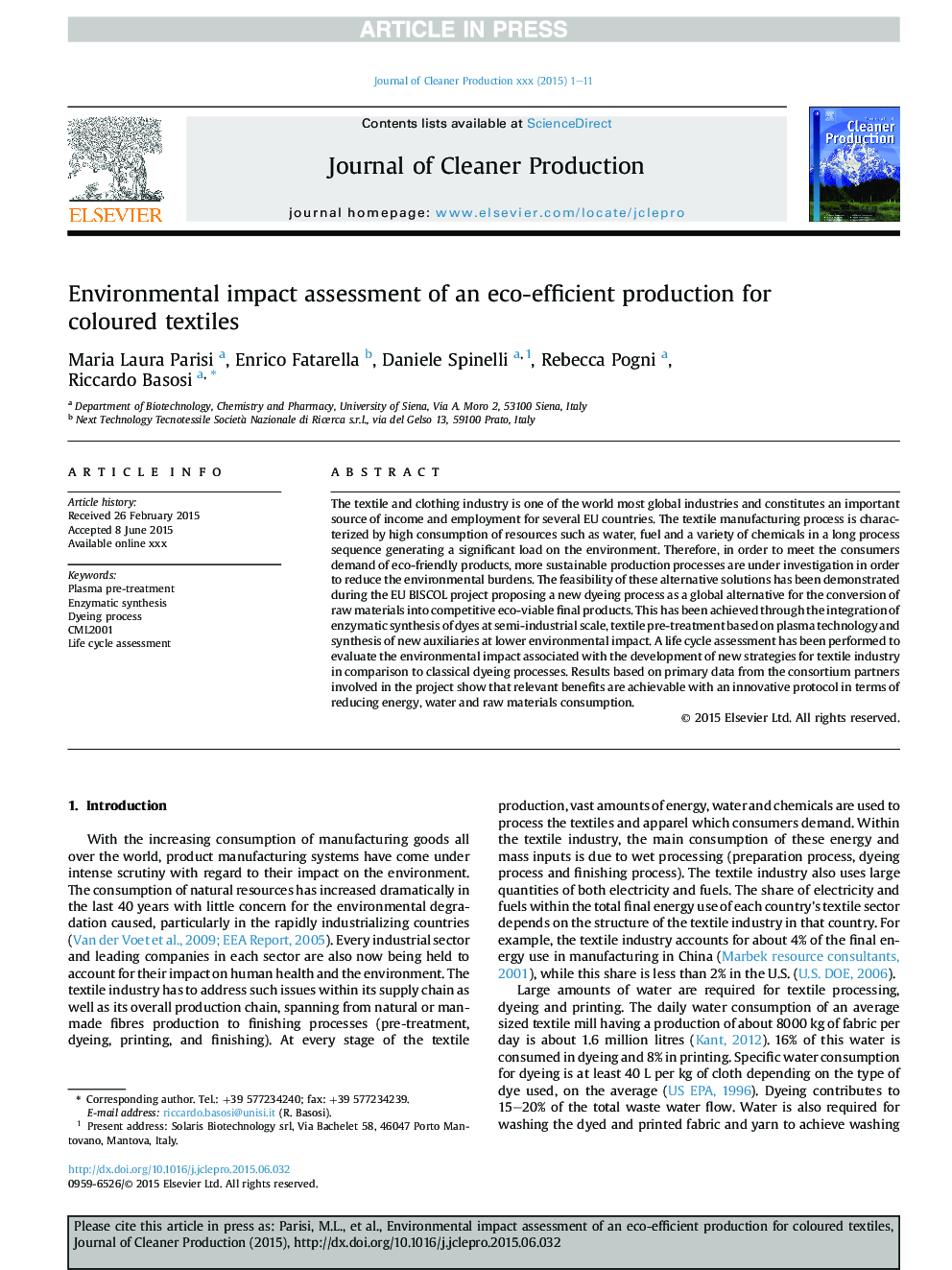| Article ID | Journal | Published Year | Pages | File Type |
|---|---|---|---|---|
| 10688183 | Journal of Cleaner Production | 2015 | 11 Pages |
Abstract
The textile and clothing industry is one of the world most global industries and constitutes an important source of income and employment for several EU countries. The textile manufacturing process is characterized by high consumption of resources such as water, fuel and a variety of chemicals in a long process sequence generating a significant load on the environment. Therefore, in order to meet the consumers demand of eco-friendly products, more sustainable production processes are under investigation in order to reduce the environmental burdens. The feasibility of these alternative solutions has been demonstrated during the EU BISCOL project proposing a new dyeing process as a global alternative for the conversion of raw materials into competitive eco-viable final products. This has been achieved through the integration of enzymatic synthesis of dyes at semi-industrial scale, textile pre-treatment based on plasma technology and synthesis of new auxiliaries at lower environmental impact. A life cycle assessment has been performed to evaluate the environmental impact associated with the development of new strategies for textile industry in comparison to classical dyeing processes. Results based on primary data from the consortium partners involved in the project show that relevant benefits are achievable with an innovative protocol in terms of reducing energy, water and raw materials consumption.
Related Topics
Physical Sciences and Engineering
Energy
Renewable Energy, Sustainability and the Environment
Authors
Maria Laura Parisi, Enrico Fatarella, Daniele Spinelli, Rebecca Pogni, Riccardo Basosi,
